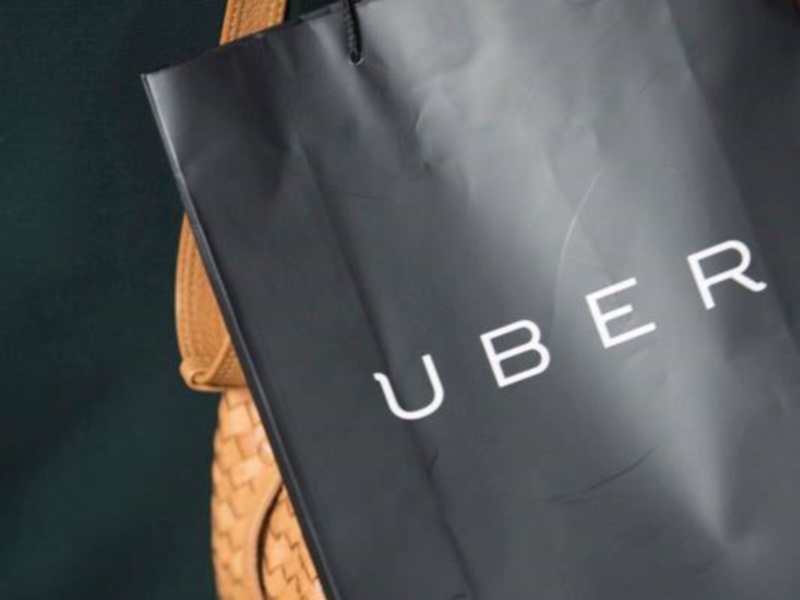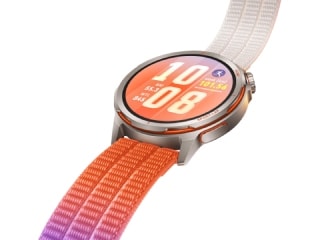- Home
- Apps
- Apps Opinion
- What Uber and Strippers Have in Common
What Uber and Strippers Have in Common

Now a federal appeals court has weighed in with a ruling that strippers are employees. Its reasoning provides an important window into the legal question on which a whole business model depends.
The case arose from a lawsuit brought by exotic dancers working in several Maryland clubs. The dancers weren't paid salaries by the clubs, which insisted that they were independent contractors. Starting in September, 2011, the clubs made the dancers sign an agreement saying that's what they were.
The dancers made their money from tips and from what the court decorously called "performance fees," presumably paid for lap dances. The club also collected what it called a "tip-in" fee from everyone who came into the club, whether dancer or patron.
Written agreements notwithstanding, a group of dancers sued the clubs, saying they were employees and as a result deserved legally mandated minimum wages.
A federal jury found that the dancers were employees and the US Court of Appeals for the Fourth Circuit agreed in an opinion by Judge J. Harvie Wilkinson, a Reagan appointee who used to appear regularly on lists of potential conservative Supreme Court nominees.
Wilkinson analyzed the question of employee versus independent contractor under the Federal Labor Standards Act. The test, he said, was one of "economic reality." A court must ask whether the worker is "economically dependent on the business to which he renders service or is," as a matter of economic reality, "in business for himself."
Since courts are bad at making such abstract determinations without guidance, Wilkinson said he would apply a six-part test derived from Fourth Circuit precedent. But ultimately he focused on one factor, namely how much the clubs controlled the dancers.
The opinion pointed out that the clubs set the dancers' schedules, set guidelines for the workplace and set the fees for private dances. Some dancers were coached on their dancing technique. Wilkinson also mentioned that the clubs set their own hours, did their own advertising and sold food and drink. All this, he said, amounted to more control than one would expect from a client of an independent contractor.
What's fascinating about the opinion is that most of the factors that Wilkinson cited could be applied to Uber drivers. Uber doesn't set drivers' schedules. But it lays down detailed rules and guidelines. It sets fees. It advertises.
One takeaway from this case is therefore that courts may be more likely to call gig workers employees than the existing legal tests would suggest. Wilkinson seems to have proceeded intuitively. The dancers worked in clubs and seemed like employees to him.
The second takeaway is that the "economic reality" test, with its focus on dependence, is wildly insufficient to decide real-world cases in today's economy.
Dancers are certainly dependent on the clubs - but are also in business for themselves. Similarly, Uber drivers couldn't find riders without Uber - but are also in business for themselves.
The relationship of dependence also runs in the other direction. There would be no strip clubs without the dancers. And there would be no Uber without drivers.
Given the practical facts of interdependence, it's hard to see how "economic reality" can tell us the answers to whether gig workers should be treated as employees. What we need is a new way to analyze what the law requires when it comes to nontraditional forms of employment.
We should be asking, "What benefits should working people have?" If we can answer that question, we can embrace disruptive changes without fearing loss of our social support network. And we can assure that the disruption is economically real and productive, not simply an exploitation of a loophole in employment law.
© 2016 Bloomberg L.P.
Get your daily dose of tech news, reviews, and insights, in under 80 characters on Gadgets 360 Turbo. Connect with fellow tech lovers on our Forum. Follow us on X, Facebook, WhatsApp, Threads and Google News for instant updates. Catch all the action on our YouTube channel.
Related Stories
- Samsung Galaxy Unpacked 2026
- iPhone 17 Pro Max
- ChatGPT
- iOS 26
- Laptop Under 50000
- Smartwatch Under 10000
- Apple Vision Pro
- Oneplus 12
- OnePlus Nord CE 3 Lite 5G
- iPhone 13
- Xiaomi 14 Pro
- Oppo Find N3
- Tecno Spark Go (2023)
- Realme V30
- Best Phones Under 25000
- Samsung Galaxy S24 Series
- Cryptocurrency
- iQoo 12
- Samsung Galaxy S24 Ultra
- Giottus
- Samsung Galaxy Z Flip 5
- Apple 'Scary Fast'
- Housefull 5
- GoPro Hero 12 Black Review
- Invincible Season 2
- JioGlass
- HD Ready TV
- Latest Mobile Phones
- Compare Phones
- Leica Leitzphone
- Samsung Galaxy S26+
- Samsung Galaxy S26 Ultra
- Samsung Galaxy S26
- iQOO 15R
- Realme P4 Lite
- Vivo V70
- Vivo V70 Elite
- Asus TUF Gaming A14 (2026)
- Asus ProArt GoPro Edition
- Huawei MatePad Mini
- Infinix Xpad 30E
- Huawei Watch GT Runner 2
- Amazfit Active 3 Premium
- Xiaomi QLED TV X Pro 75
- Haier H5E Series
- Asus ROG Ally
- Nintendo Switch Lite
- Haier 1.6 Ton 5 Star Inverter Split AC (HSU19G-MZAID5BN-INV)
- Haier 1.6 Ton 5 Star Inverter Split AC (HSU19G-MZAIM5BN-INV)
















